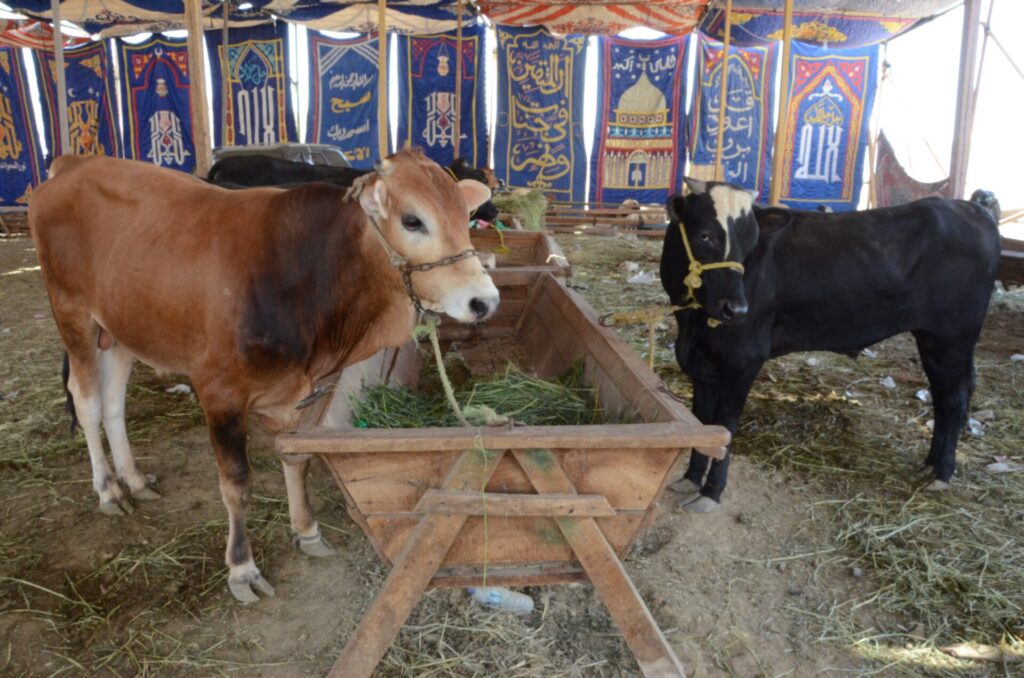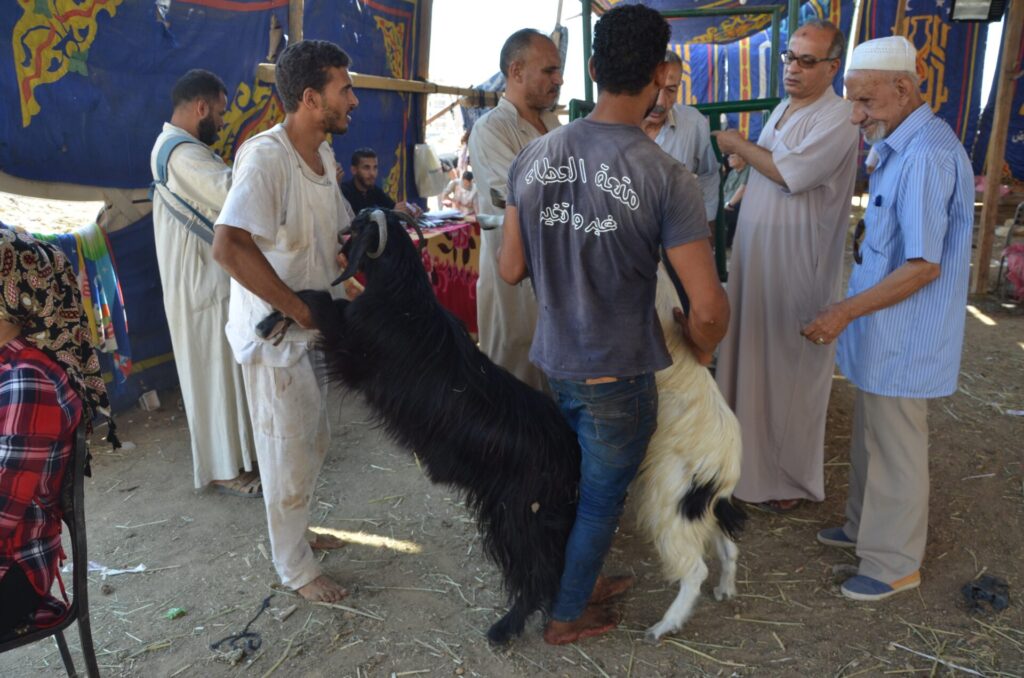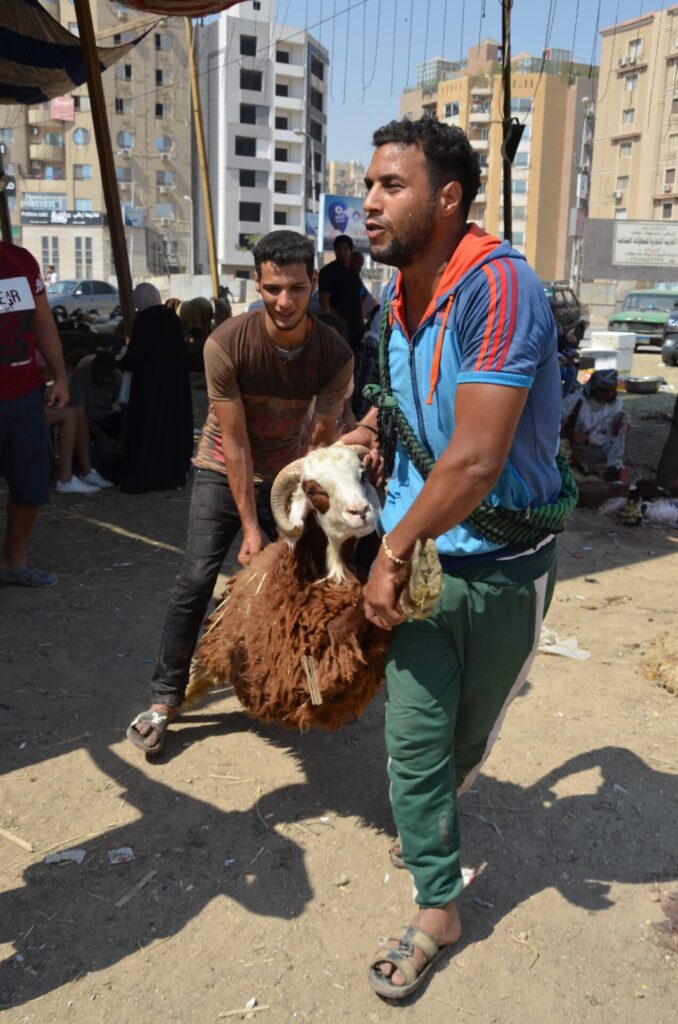Many Egyptians marked the annual Islamic holiday of Eid Al-Adha this week with the traditional sacrifice of a sheep, cow or goat, despite deepening economic hardships that livestock traders say have weakened demand.
Muslims in Egypt – who make up around 90 percent of the population – traditionally sacrifice an animal to mark the four-day festival, in commemoration of the Prophet Abraham’s willingness to sacrifice his son on God’s command, and share the meat with relatives and the poor.
But in the wake of three years of macroeconomic reforms and the soaring inflation that has resulted, the traditional offering has become more and more expensive.
“It is a bigger financial burden now than before, but it’s tradition and charity…even if one is dismayed by the [high] prices,” 40-year-old housewife Dalaa told Africa Portal on Tuesday, as she waited at a temporary cattle market in Cairo for the goat she had just bought to be slaughtered.

Slowing trade
The seasonal trade in goats, cows and sheep usually booms in the run-up to the annual holiday, but has slowed steadily in recent years, traders say. Many have put that down to a raft of austerity measures recently introduced by the government which have left many Egyptians worse off.
“Sales are going down every year. The country is struggling and people are hardly getting by,” said Yasser Geneidy, a trader at a temporary livestock market set up by the agriculture ministry in southern Cairo.
This season, the prices of goats and sheep range between EGP 2,500 ($150) and EGP 4,000 ($240) a head, while cows cost between EGP 12,000-27,000 ($720-$1,630).
Although prices have gone down slightly this Eid compared with last year, when inflation was much higher, sales are still lower than in 2018, according to merchants.
“There is a general state of stagnation,” said Mahmoud Rabea, another local livestock trader. He claims that Eid sales have almost halved since the government floated Egypt’s pound in November 2016, in one of its flagship reforms designed to boost the country’s struggling economy.

Butchery in the street
Ahead of the holiday, which began on Sunday, provincial officials warned that hefty fines would be imposed on those who slaughter animals in city streets, saying butchering must take place at abattoirs. Offenders risk a fine of between EGP 1,000 and EGP 10,000 ($60-600), according to the spokesman for Cairo governorate, Ibrahem Awad.
Officials said special trucks would be dispatched around Cairo to collect animal entrails and remove traces of blood, which they say pollute the environment and strain the sewage system. In addition, Egypt’s top Islamic religious authority, Al-Azhar, has said leaving behind animal remains is a “great sin” that violates sharia law.
But efforts to curb the traditional scenes of outdoor butchery don’t seem to have had much effect so far; Africa Portal saw plenty of slaughter taking place at temporary markets that had sprung up across the capital ahead of the holiday, with animals being butchered amid exhaust fumes in the densely populated megacity.
Trader Rabea says the market where he works in the southern suburb of Basatin is authorized by the municipality, and that animal remains are disposed of in a nearby vacant plot, around a kilometer from any residential buildings.
A local butcher in the northeastern neighborhood of Nasr City told Africa Portal he had continued to butcher animals in the street this year and has not been fined, although penalties were introduced last year.
“Customers want to see animals slaughtered with their own eyes. That’s how we have always done it in Eid.”

(All images taken by Ayat Al-Tway for Africa Portal)
The opinions expressed in this article are those of the author(s) and do not necessarily reflect the views of SAIIA or CIGI.
